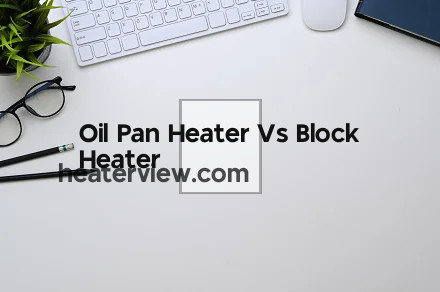Introduction:
There are a couple different types of engine heaters: oil pan heaters and block heaters. Both have their pros and cons, so it’s important to know which one is right for your car.
Oil pan heaters are less expensive and easier to install than block heaters. They’re also less likely to cause engine damage if they’re not used properly. However, oil pan heaters don’t heat the engine as evenly as block heaters, so they’re not as effective in extremely cold weather.
Block heaters are more expensive and harder to install than oil pan heaters. They also have the potential to damage your engine if they’re not used properly. However, block heaters heat the engine more evenly than oil pan heaters, so they’re more effective in extremely cold weather.
Differences Between: oil pan heater vs block heater
1. Oil pan heaters are typically used to heat the oil in a car’s engine, while block heaters are used to heat the engine block itself.
2. Oil pan heaters typically need to be installed in the oil pan itself, while block heaters can be installed in various locations on the engine block.
3. Oil pan heaters typically use electricity to generate heat, while block heaters can use either electricity or a fuel source such as propane.
4. Oil pan heaters are typically less expensive than block heaters.
5. Oil pan heaters typically have a lower risk of fire than block heaters.
6. Oil pan heaters typically take longer to heat up an engine than block heaters.
7. Oil pan heaters are typically less durable than block heaters.
8. Oil pan heaters typically require more maintenance than block heaters.
9. Oil pan heaters may not be as effective in extremely cold temperatures as block heaters.
Everything About oil pan heater
Pros:
1. Oil pan heaters are less expensive than block heaters.
2. Oil pan heaters are easier to install than block heaters.
3. Oil pan heaters heat up the oil faster than block heaters.
4. Oil pan heaters are less likely to overheat the oil than block heaters.
5. Oil pan heaters can be used with a timer to preheat the oil before starting the engine, which can prolong the life of the engine.
6. Oil pan heaters can be used to maintain the oil temperature during short periods of engine operation, such as during a cool down period.
7. Oil pan heaters can be used to warm the engine before starting it, which can reduce wear on the engine.
8. Oil pan heaters can be used to preheat the engine coolant, which can reduce engine wear.
9. Oil pan heaters can be used to improve the efficiency of oil filters.
10. Oil pan heaters can be used to improve the performance of the engine in cold weather.
Cons:
1. Oil pan heaters can be a fire hazard if not used properly.
2. Oil pan heaters can overheat the oil if used for too long.
3. Oil pan heaters can damage the oil if used improperly.
4. Oil pan heaters can cause the engine to run less efficiently if the oil is not at
In-depth Review of block heater
1. A block heater warms up the engine of a car faster than an oil pan heater, making it ideal for cold weather starts.
2. A block heater can help prolong the life of an engine by reducing wear and tear.
3. A block heater can improve fuel economy by up to 10%.
4. A block heater can improve the performance of a car by providing quicker starts and smoother idle.
5. A block heater can be used to preheat the engine oil, making it easier to change the oil in cold weather.
6. A block heater can be used to preheat the coolant, making it easier to change the coolant in cold weather.
7. A block heater can be used to preheat the transmission fluid, making it easier to change the transmission fluid in cold weather.
8. A block heater can be used to preheat the engine block, making it easier to work on the engine in cold weather.
9. A block heater can be used to thaw frozen pipes.
10. A block heater can be used to heat a garage or workshop in cold weather.
I hope that you understand now. If you have any questions, please leave a comment below.

